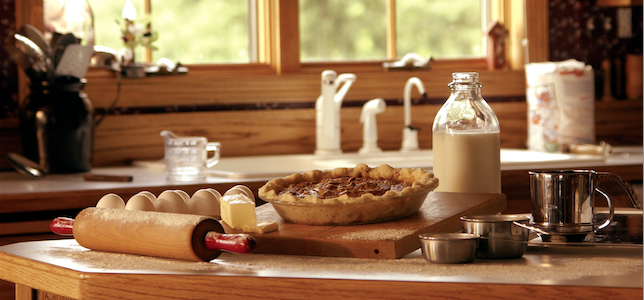Bev and Phil Haas
My husband tells me I’m hanging on too tightly to our 15-year-old son. I know someday he will be on his own, but that’s not now. So what do I do in the meantime?
 Patrick Henry’s famous statement, “Give me liberty or give me death,” could well describe the internal urge of every healthy teenager. They must eventually become a separate person if a strong sense of self is to develop.
Patrick Henry’s famous statement, “Give me liberty or give me death,” could well describe the internal urge of every healthy teenager. They must eventually become a separate person if a strong sense of self is to develop.
Developmental psychologists have a term for this process: individuating. It means your son is slowly but surely becoming his own person as he disconnects from you. This process is normal, and most parents know intuitively that we should cheer on our child’s growing freedom and independence. And you seem to—mostly. But for the part of you that wants to hang on a little too tightly, we offer the following insights into the necessary process of letting our kids go.
Letting Go Starts Early
God wired children to develop their own identity, and most of us just don’t notice it until our kids turn into teenagers. Our 2-year-old grandson, Connor, is already heading down the path toward independence. Whenever we ask him if he wants our help, his rapid reply is, “No, no, no! I do it myself!” We don’t take this personally. Connor is just acting like a normal 2-year-old. A while back we read a report on some research that made comparisons between 2-year-olds and teens, and there were some interesting similarities. They are both seeking independence.
We hope you realize that you have been gradually letting go of your son for a long time. It’s only now that you are probably counting the few years left before you must let go for good. That’s frightening for any parent. What might be more terrifying is to think about not letting go and having your son live with you for the rest of your life! Someone cleverly pointed out that God created the teen years to help parents finally let go.
Letting Go Means Doing Less
The same commitment we offer when our children are small (love, protection, involvement) also causes us to hold too tightly when they are growing up. Your son is growing up and moving toward being independent of you. However, research indicates your teenager will be dependent on your pocketbook (to some extent) until the age of 26. This independent-yet-dependent stage can be prickly for both parent and teen, especially when the latter doesn’t want your involvement in his life but still needs your financial backing. That explains the bumper sticker someone told us about recently: “Money isn’t everything, but it sure keeps the kids in touch.”
The solution is to work with this reality by understanding the difference between what’s yours to control and what isn’t. This is where you’ll discover that you need to do less, not more.
Letting Go Is Good for All
We live in an era when parents are judged by how involved they are with their children, and there are parents who enjoy building their whole lives around their kids. But for most, all this helicopter parenting is forcing the fun out of family life. According to research, parents who are overinvested in their kids’ lives are more likely to be depressed. And all these well-intentioned actions have a downside. Whatever a parent does for their kid robs that kid from being able to do something for himself. Letting go is good for all, and it’s how God intends for us to parent.
God wants us to “train up” our children (Proverbs 22:6, English Standard Version), not to train down. He wants us to send the message, “You’ll do fine in this world” rather than, “I’m afraid you won’t make it without me.” Letting go is about preparing our kids to survive and thrive in the world rather than protecting and sheltering them from the experiences that teach them how to cope with life as a mature adult.
OK, let’s admit that letting go hurts. Dr. James Dobson, renowned child psychologist and author, admitted to his own difficulties in this area. “I understood the importance of turning loose before our kids were born,” he said. “I wrote extensively on the subject when they were still young. I prepared a film series in which all the right principles were expressed. But when it came time to open my hand and let the birds fly, I struggled mightily!” Some of Dr. Dobson’s best advice to parents was to “hold them close and let them go.” We agree!
Bev and Phil Haas are involved in education and family ministry in Cincinnati, Ohio. They have two children and two grandsons. Send your questions about family life to Bev and Phil Haas in care of The Lookout (lookout@standardpub.com). We regret that personal replies are not always possible.



Comments: no replies